Medical articles
What is a colonoscopy?
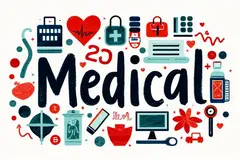 Understanding Colonoscopies: What You Need to Know
A colonoscopy is a medical procedure that allows doctors to examine the lining of your large intestine (colon) and rectum. This non-invasive test plays a crucial role in early detection, diagnosis, and treatment of colorectal diseases.
Why Getting a Colonoscopy Matters
Colonoscopies are essential for... read more...
Understanding Colonoscopies: What You Need to Know
A colonoscopy is a medical procedure that allows doctors to examine the lining of your large intestine (colon) and rectum. This non-invasive test plays a crucial role in early detection, diagnosis, and treatment of colorectal diseases.
Why Getting a Colonoscopy Matters
Colonoscopies are essential for... read more...
Top Foods That Trigger Allergies
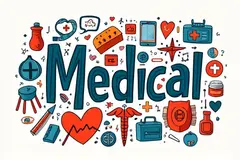 Foods are a common source of allergies, affecting millions of people worldwide. Some of the most prevalent food allergens include:
Peanuts: Peanuts can cause severe reactions in some individuals.
Nuts (tree nuts): Almonds, walnuts, and cashews are among the top allergenic foods.
Milk: Lactose intolerance is often confused with milk allergy, which can be... read more...
Foods are a common source of allergies, affecting millions of people worldwide. Some of the most prevalent food allergens include:
Peanuts: Peanuts can cause severe reactions in some individuals.
Nuts (tree nuts): Almonds, walnuts, and cashews are among the top allergenic foods.
Milk: Lactose intolerance is often confused with milk allergy, which can be... read more...
Does high blood sugar always show immediate symptoms?
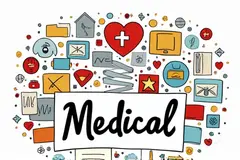 High blood sugar, or hyperglycemia, is a condition that can have serious health implications if left unchecked. However, many people wonder whether high blood sugar always presents with immediate and obvious symptoms, or if it can go unnoticed for extended periods of time. This article explores the nuances of elevated blood glucose levels and delves into the... read more...
High blood sugar, or hyperglycemia, is a condition that can have serious health implications if left unchecked. However, many people wonder whether high blood sugar always presents with immediate and obvious symptoms, or if it can go unnoticed for extended periods of time. This article explores the nuances of elevated blood glucose levels and delves into the... read more...
Can anxiety cause chest pain?
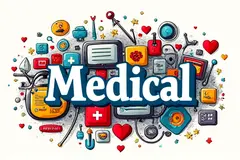 Anxiety disorders are prevalent in today's fast-paced world, affecting millions of people globally. One common symptom associated with anxiety is chest pain, which can be alarming and often mistaken for a heart attack. This article explores the intricate relationship between anxiety and chest discomfort, providing insights into whether and how anxiety... read more...
Anxiety disorders are prevalent in today's fast-paced world, affecting millions of people globally. One common symptom associated with anxiety is chest pain, which can be alarming and often mistaken for a heart attack. This article explores the intricate relationship between anxiety and chest discomfort, providing insights into whether and how anxiety... read more...
Epilepsy seizure triggers?
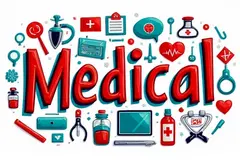 What Triggers Epileptic Seizures?
Epilepsy is a neurological disorder characterized by recurrent seizures. These seizures can be triggered by various internal and external factors. Understanding what triggers your seizures is crucial for effective seizure management and prevention.
Common Causes of Epilepsy Seizures
Genetic Factors: Certain genetic... read more...
What Triggers Epileptic Seizures?
Epilepsy is a neurological disorder characterized by recurrent seizures. These seizures can be triggered by various internal and external factors. Understanding what triggers your seizures is crucial for effective seizure management and prevention.
Common Causes of Epilepsy Seizures
Genetic Factors: Certain genetic... read more...
Potassium Chloride: Benefits and Uses
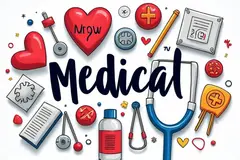 Potassium chloride (KCl) is a mineral supplement commonly used to treat or prevent low levels of potassium in the body. Potassium is an essential electrolyte that plays a critical role in various bodily functions, including muscle contractions, nerve function, and maintaining heart health.
One of the primary benefits of potassium chloride supplements is... read more...
Potassium chloride (KCl) is a mineral supplement commonly used to treat or prevent low levels of potassium in the body. Potassium is an essential electrolyte that plays a critical role in various bodily functions, including muscle contractions, nerve function, and maintaining heart health.
One of the primary benefits of potassium chloride supplements is... read more...
Does cold weather cause colds?
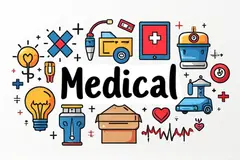 Does Cold Weather Really Cause Colds?
The age-old question: does cold weather actually cause the common cold? This article delves into the science behind why we might feel more under the weather during winter months and separates fact from fiction.
Why Do We Get More Colds in Winter?
Winter is often associated with an uptick in respiratory illnesses,... read more...
Does Cold Weather Really Cause Colds?
The age-old question: does cold weather actually cause the common cold? This article delves into the science behind why we might feel more under the weather during winter months and separates fact from fiction.
Why Do We Get More Colds in Winter?
Winter is often associated with an uptick in respiratory illnesses,... read more...
What are the benefits of drinking water?
 Why Staying Hydrated Is Crucial
Water is essential for life and plays a critical role in maintaining optimal health. The human body is composed of approximately 60% water, making it an integral part of our bodily functions. From regulating temperature to aiding digestion, staying hydrated is vital for overall well-being.
Top Reasons to Drink More H2O
There... read more...
Why Staying Hydrated Is Crucial
Water is essential for life and plays a critical role in maintaining optimal health. The human body is composed of approximately 60% water, making it an integral part of our bodily functions. From regulating temperature to aiding digestion, staying hydrated is vital for overall well-being.
Top Reasons to Drink More H2O
There... read more...
Why do we get food cravings?
 Understanding Food Cravings: Causes & Solutions
Food cravings are a common experience that can be both frustrating and confusing. They often lead us to indulge in unhealthy eating habits, causing concern about our health and well-being. To tackle these cravings effectively, it's crucial to understand their root causes and explore practical... read more...
Understanding Food Cravings: Causes & Solutions
Food cravings are a common experience that can be both frustrating and confusing. They often lead us to indulge in unhealthy eating habits, causing concern about our health and well-being. To tackle these cravings effectively, it's crucial to understand their root causes and explore practical... read more...
Can GERD be cured permanently?
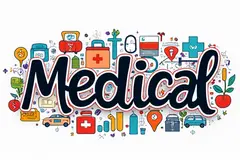 Can You Truly Cure GERD Forever?
Gastroesophageal reflux disease (GERD) is a chronic condition that affects millions of people worldwide. The persistent burning sensation, heartburn, and other symptoms can significantly impact one's quality of life. Many sufferers wonder if there is a permanent cure for GERD or if they will be managing the condition... read more...
Can You Truly Cure GERD Forever?
Gastroesophageal reflux disease (GERD) is a chronic condition that affects millions of people worldwide. The persistent burning sensation, heartburn, and other symptoms can significantly impact one's quality of life. Many sufferers wonder if there is a permanent cure for GERD or if they will be managing the condition... read more...
Tonsillitis Symptoms & Treatment
 Tonsillitis is a common condition characterized by inflammation of the tonsils. The primary symptoms include sore throat, difficulty swallowing, fever, swollen lymph nodes, and white or yellow spots on the tonsils. If you suspect you have tonsillitis, it's important to seek medical advice for proper diagnosis and treatment.
How to Treat Tonsillitis at... read more...
Tonsillitis is a common condition characterized by inflammation of the tonsils. The primary symptoms include sore throat, difficulty swallowing, fever, swollen lymph nodes, and white or yellow spots on the tonsils. If you suspect you have tonsillitis, it's important to seek medical advice for proper diagnosis and treatment.
How to Treat Tonsillitis at... read more...
What is a blood clot and how is it treated?
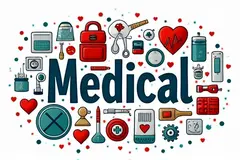 What Is a Blood Clot & How to Treat It?
Blood clots are serious medical conditions that can lead to severe complications, including heart attacks, strokes, and pulmonary embolisms. Understanding what blood clots are, their causes, symptoms, and treatment options is crucial for maintaining good health.
Understanding Blood Clots: Causes &... read more...
What Is a Blood Clot & How to Treat It?
Blood clots are serious medical conditions that can lead to severe complications, including heart attacks, strokes, and pulmonary embolisms. Understanding what blood clots are, their causes, symptoms, and treatment options is crucial for maintaining good health.
Understanding Blood Clots: Causes &... read more...